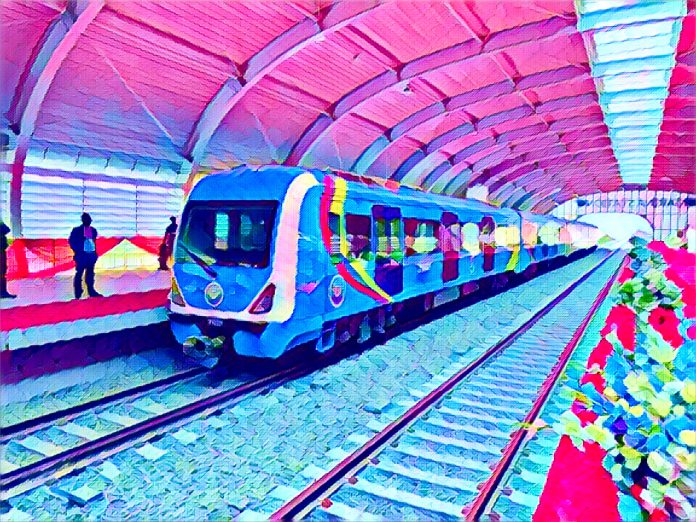Nigeria’s transport sector is showing signs of robust recovery, with rail transport growth hitting a two-year high. This significant development marks the sector’s exit from a prolonged recession, driven by strategic investments and policy reforms aimed at revitalizing the nation’s infrastructure.
The latest data from the National Bureau of Statistics (NBS) indicates a remarkable surge in rail transport activities, contributing substantially to the overall economic recovery. In the first quarter of this year, the rail sector recorded a growth rate of 5.2%, the highest in two years, signaling a positive turnaround after a period of stagnation and decline.
Experts attribute this growth to several factors, including increased government investment in rail infrastructure, public-private partnerships, and policy initiatives designed to enhance operational efficiency. “The government’s focus on improving the rail network and fostering partnerships with private entities has been pivotal in driving this growth,” said a transport analyst.
The resurgence of the rail sector is a welcome development for Nigeria’s economy, offering an efficient and cost-effective mode of transport that can alleviate pressure on the overburdened road networks. “Rail transport is critical for economic development. It reduces road congestion, lowers transportation costs, and facilitates the movement of goods and people across the country,” noted an economist.
Recent projects, such as the completion of the Lagos-Ibadan railway and ongoing work on the Abuja-Kaduna and Kano-Maradi lines, have significantly boosted the sector’s capacity. These projects are part of a broader strategy to modernize Nigeria’s rail infrastructure and improve connectivity between major economic hubs.
In addition to infrastructure upgrades, the government has implemented several policy measures to support the sector. These include tax incentives for rail operators, streamlined regulatory processes, and efforts to attract foreign investment. “Policy reforms have created a more conducive environment for investment in the rail sector, which is crucial for its long-term sustainability,” explained a policy expert.
The private sector has also played a crucial role in the rail sector’s recovery. Companies are increasingly investing in rail logistics, recognizing the potential for growth and the benefits of an efficient rail network. “Private investment is key to expanding rail services and ensuring that they meet the needs of businesses and consumers,” said a business leader.
Despite the positive trends, challenges remain. Issues such as vandalism, outdated equipment, and insufficient funding for maintenance continue to pose threats to the sector’s growth. “While we have made significant progress, there is still much work to be done to address these persistent challenges and ensure the sector’s sustainability,” cautioned a transport official.
Looking ahead, stakeholders are optimistic about the future of Nigeria’s rail sector. Continued investment in infrastructure, combined with supportive policies and active private sector participation, is expected to drive further growth. “The rail sector has the potential to be a major driver of economic growth in Nigeria. With the right support, it can transform the country’s transportation landscape,” the economist added.
The recovery of the rail sector also brings hope for broader economic benefits, including job creation, improved trade logistics, and enhanced regional integration. “As the rail sector grows, it will create numerous opportunities for employment and business development, contributing to the overall prosperity of the nation,” said a government official.
In conclusion, the recent growth in Nigeria’s rail sector marks a significant milestone in its recovery from recession. With ongoing investments and supportive policies, the sector is poised for continued expansion, offering a brighter future for the country’s transportation infrastructure and economic development.
Source: Business Day



